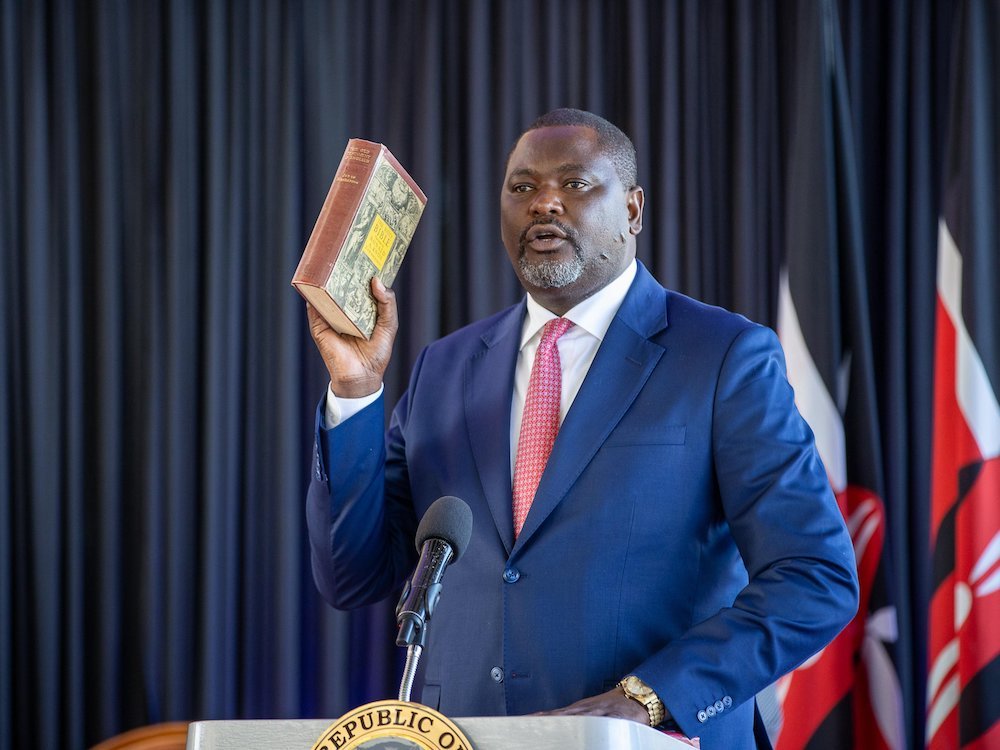Public Service, Performance and Delivery Management Cabinet Secretary Moses Ruku has publicly admitted that Kenya’s public servants are grossly underpaid—a statement that lays bare the widening cracks within the country’s civil service structure.
Speaking at a public engagement forum, CS Ruku painted a grim picture of overworked and undervalued government employees, calling for an urgent review of compensation policies and structural reforms across ministries, counties, and state agencies.
His comments mark one of the strongest acknowledgments yet by a senior government official regarding the long-standing grievances of public sector workers, who continue to shoulder heavy national responsibilities amid rising living costs and stagnant wages.
Implicated in the broader debate are the Salaries and Remuneration Commission (SRC)—mandated to set and review salaries for public officers—and the Treasury, which controls budget allocations. Various unions, including the Kenya Medical Practitioners, Pharmacists and Dentists Union (KMPDU), Kenya National Union of Teachers (KNUT), and Kenya Union of Clinical Officers (KUCO), have long decried wage injustices affecting their members.
The remarks were made in early July 2025 during a development and service delivery stakeholders’ meeting in Nairobi. The timing is particularly significant, as Kenya enters a new fiscal year amid public discourse on economic austerity, civil service downsizing, and the rationalisation of state departments.
CS Ruku’s comments come as various ministries and county governments implement cost-cutting measures, including freezing new hires, merging departments, and reviewing allowances.
At the Nairobi forum, where CS Ruku addressed public officers, county officials, union representatives, and sector stakeholders, the discussion—originally focused on strengthening service delivery frameworks—quickly turned into a platform for airing deep frustrations within the civil service.
Ruku cited underfunding, systemic neglect, and poor planning as key reasons public servants remain underpaid. He argued that while the government relies on this workforce to implement national policy, their welfare has been consistently overlooked.
“Public servants in this country are not paid well. That is a reality we must stop pretending about,” Ruku declared. “How do we expect officers to deliver when they cannot even meet their basic needs? Some of them report to work without transport, without offices, or even stationery. This is a crisis we must face head-on.”
He further stated, “There’s a serious mismatch between what is expected from civil servants and what they are given in return. Many are earning salaries that don’t reflect the weight of the work they carry or the years they’ve served.”
He warned that demoralisation within the public service ranks is growing and that Kenya risks losing its best talent if changes are not implemented. “We are losing experienced officers to other sectors. We are training people with public funds, then watching them walk away because we can’t pay them well,” he said.
CS Ruku revealed that the government is undertaking a public sector rationalisation programme aimed at aligning staffing levels, performance expectations, and remuneration policies. He acknowledged the work of the SRC, which is currently reviewing the public wage structure across cadres.
“There will be no quick fix, but reforms are coming. We are re-evaluating the structures of work, performance targets, and compensation frameworks. The aim is to ensure equity, fairness, and motivation,” he said.
Ruku also hinted at the introduction of performance-based promotions and pay incentives, stating, “We must move away from blanket salary scales that don’t reflect performance. The officers who go above and beyond must feel it in their pay slips.”
Additionally, he called on the Treasury to prioritise public service financing in future budget cycles, noting, “We cannot reform service delivery while ignoring the men and women who drive it. This should be a national conversation.”
He concluded by assuring civil servants that the government is not blind to their plight: “We are not where we should be, but I want public servants to know—you are seen, you are heard, and something is being done.”
CS Moses Ruku’s frank admission about the underpayment of public servants has reignited debate over civil service reforms and workers’ rights in Kenya. His remarks have added pressure on the SRC, the Treasury, and Parliament to act decisively.
While implementation of reforms may take time, the call for fair compensation is louder than ever. As Ruku stated: “We cannot expect world-class services from a workforce that’s constantly struggling to survive.”
– By Wambui Wachira


